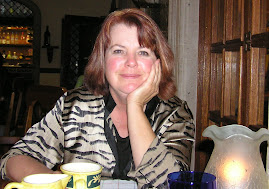When I’m chasing wild hares across their erratic paths, I’m too tired for reflective and meaningful reading. Recently I corralled the metaphoric hares, and then rode Amtrak’s Pacific Surfliner to Los Angeles for a girlfriends’ day.
The four-hour ride through farms spotted with discarded rusting trucks, and bovines feasting on the rich El Nino-fed grasses just a few feet from the Pacific Ocean, gave me time to read and savor the poetry of Sheila Cowing.
The four-hour ride through farms spotted with discarded rusting trucks, and bovines feasting on the rich El Nino-fed grasses just a few feet from the Pacific Ocean, gave me time to read and savor the poetry of Sheila Cowing.
In full disclosure, I’ve known Sheila for 20-something years. She is a writer who I respect and lust for her “play with wording” mastery. Sheila graduated from Barnard College and earned her MFA from Goddard College’s part-time writing program. Framed awards, like the New Jersey Arts Council’s Distinguished Artist Fellowship, a Poet and Writer Reading award and a Recursos Discovery award grace her walls. Her published works include Stronger in the Broken Places, a full-length poetry volume.
Cowing’s 2009 Jackrabbit Highways juts along paths of loss, wonder, anger, self-revelation and discovery.
juts along paths of loss, wonder, anger, self-revelation and discovery.
Like a quick-moving jackrabbit, Cowing’s precise word movement is as pleasant and juicy to read as the first bite into a September-ripened tomato as noted in her poem “Tomato.”
My late sister wrote poetry, but never saw it published, just like most of us who dabble in verse. A good poet can retell a 300 page novel in less than 300 words. That’s the poet’s art.
Sheila took some time from her spring gardening chores to answer three questions about how and what it takes to become a published poet.
Charmaine: Sheila, you have succeeded in the poet’s world. Yes, “it doesn’t pay,” (like you wrote in “Why Poety? It Doesn’t Pay!,” which you note is for your father) but you are a published poet. How many poems did it take to reach this status?
Sheila: What it required was passion and determination. I was well into my forties before I began to realize I could touch my dream. When I began to publish in literary journals thirty years ago, competition was not as great as it is now. I had the encouragement of my new MFA from Goddard’s short intense residency program, the first of its kind. I’d studied the market. And yes, I began to publish fairly easily.
Charmaine: You wrote in “A Blowing Yellow Crocus”, “The words are as tough to loose as the cold is to hide from,” — every writer’s dilemma. Still, you have managed to tackle in slim-language subjects we all recognize. So how do you loosen the words?
Sheila: I no longer wait for the right words the way I used to. I jam any old words onto the page, right or wrong. They can be corrected later. They will be corrected later. Most of them are. I am an inveterate reviser. Some poems have thirty or forty revisions. It doesn’t matter in the least how many revisions they have. The point is get the idea down fast. The first idea may well not be the right idea. In fact I don’t even trust the first versions. The poem you quote came out of my obsession with the contrast between arriving Christmas cards and the tsunami that had just struck Aceh, and yes, the right words were hard to find.
When I’m stuck, I have exercises I use. I have three books I use (when I remember I have them!) that contain these; the first chapter of one is called “Finding the Word Horde.” But of course there’s many the time I find myself simply staring out the window.
Charmaine: Everyday many women sketch words in prose. To have those words recognized (without paying to have them published) is a dream. What would you say to the woman who has written poetry all her life and would love to see it gainfully published?
Sheila: I admire this woman in her solitude. “The act of poetry,” wrote the Italian poet Caesare Pavese, “is an absolute will to see clearly.” I hope she has shared her poetry with others, has perhaps worked with a group talking about poems and literature, so that her words are not merely sentiment, as her chances of being another Emily Dickinson
Frankly, it isn’t easy to publish a book of poems. You start by trying to publish one poem, studying the market and sending out five or six poems, waiting five or six months until your stamped, self-addressed envelope comes back from that editor, then you ship those poems right out to the next market on your list. Once you’ve published say 10 to 15 poems from your book, you begin to look for a market for the entire book.
But there is another way, self-publishing. There are publishers listed in the books I list below or in the magazinePoets and Writers
I tried the contest route, and was hopelessly out competed. On occasion I would win an honorable mention, but so what…it was easy to become discouraged. This route took years.
There is a paperback volume called “The Directory of Poetry Publishers
I don’t know what to say by way of encouragement. There are women who have written poems all their lives who emerged full-blown. I believe Ruth Stone was one; she’s now in her late 80s, and she’s won all sorts of prizes. Amy Clampbitt was another. I’ve admired some of her work.
_______________________
Jackrabbit Highways










No comments:
Post a Comment